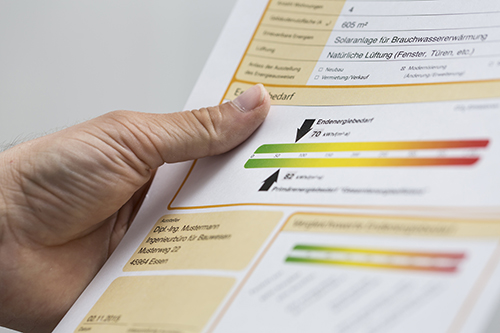Energy Performance Certificates
Since 2008, Viridian UK has carried out over 1700 Energy Performance Certification Surveys for domestic and commercial buildings. A Domestic and Non-Domestic Energy Assessor is an accredited individual who undertakes energy assessments of homes to produce an Energy Performance Certificate using the approved RDSAP methodology.
A Commercial Energy Assessor is an accredited individual specialising in commercial buildings / places of business, who undertakes energy assessments of buildings and produce Energy Performance Certificates using approved assessment procedures.
An EPC gives a property an energy efficiency rating from A (most efficient) to G (least efficient) and is valid for 10 years. An assessment determines a property’s energy use and typical energy costs, recommendations are made on how to reduce energy use and save money.
You can be fined if you fail to get an EPC when you need one. If you are selling the house, a landlord or a letting agent must show you the EPC if you’re buying or renting.
Homes require an EPC:
- to have solar PV installed
- to be sold
- to be rented
Buildings that do not require an EPC for:
- places of worship
- temporary buildings that will be used for less than 2 years
- stand-alone buildings with total useful floor space of less than 50M2
- industrial sites, workshops and non-residential agricultural buildings that doesn’t use a lot of energy
- some buildings that are due to be demolished
- holiday accommodation that’s rented out for less than 4 months a year or is let under a license to occupy
- listed buildings – seek advice from your local authority conservation officer if the work would alter the building’s character
- residential buildings intended to be used less than 4 months a year

Energy Efficiency Surveys
An efficiency survey is ideal for all buildings, Domestic or Commercial, to investigate the scope for potential savings and the need for more detailed investigations.
Multi-Site Energy Efficiency Surveys
Our multi-site energy efficiency survey is ideal for companies that occupy a large number of buildings, such as retail units. It starts by bench-marking all sites against each other to determine the least energy efficient sites, followed by energy efficiency surveys of an appropriate number of those sites. Your report will include both recommendations specific to the sites surveyed and generic recommendations that are expected to apply to all sites, and can include a review of fit-out specifications if required.
Your survey will:
- Investigate all areas of energy use.
- Identify and prioritise those areas that offer the best opportunities for significant savings with the best Return on Investment.
- Consider all relevant technologies and methods, including: heating and ventilation, air conditioning, lighting, motors, building fabric, building management systems, metering / monitoring and energy management practices.
- Take account of available display energy certificates and any relevant consumption benchmarks.
- Construct a report detailing the findings of the energy survey.
The report includes:
- An accurate assessment of the potential energy / carbon reductions.
- Specific measures required for implementation.
- Illustrative costs and payback periods.
- A prioritised step by step action plan.
- Identification of any further investigations or design studies. required prior to the implementation of specific opportunities.

